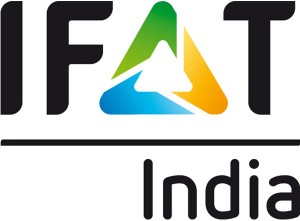IFAT Africa 2019: supporting progr19: supporting program with key environmental topics
June 27, 2019
- Environmental technology fair with 160 exhibitors
- Daily, extensive supporting program of lectures, workshops and discussions
- Key topics include sustainability in the food industry, solutions in the water/sewage sector, e-waste management and financing
In addition to the exchange of experiences at the booths, IFAT Africa 2019 will again be accompanied by an extensive supporting program on hot environmental topics in southern Africa. From July 9 to 11, 2019, Johannesburg in South Africa will be the venue for the trade fair for water, sewage, refuse and recycling.
In a few days, IFAT Africa 2019 will open its doors. Over 160 companies —including industry leaders such as Aerzen, Binder, Birim Makina, BHS Sonthofen, Endress+Hauser, Flottweg, Grundfos, Heibei, Hermann Severin, Kaeser, Komptech, KSB, Lanxess, Netzsch, Raedlinger Primus Line, Sewerage Systems Ghana, Skip Truck Traders, Standart Pompa, SUMA, Veolia Water, Vovani, Wamechsi, WEC and WILO—will use the environmental technology platform to present their solutions to the pressing environmental challenges of sub-Saharan Africa.
“As usual, we are supplementing this year's edition of the exhibition with a comprehensive, top-class program of discussions, workshops and lectures,” announces Katharina Schlegel, Exhibition Director IFAT Trade Fairs Abroad.
Panel discussion on sustainability in the food industry
This year, the environmental technology trade fair shares the Gallagher Convention Centre with the two trade fairs food & drink technology Africa and analytica Lab Africa. The resulting synergies will become clear right at the start of the trade fair on July 9: IFAT Africa’s opening panel discussion will focus on how environmental technologies can contribute to sustainable development in the food and beverage industry. In addition to waste management, agriculture and energy efficiency, the intelligent use of water plays a key role here: the processes and hygiene requirements in food and beverage production demand large quantities of this natural resource.
New approaches to water management
Other events in the supporting program also focus on the use of the “blue gold”. For example, on July 11, speakers from the German Association for Water, Wastewater and Waste (DWA) and the Water Institute of Southern Africa (WISA) will present new approaches to water management, addressing the possibilities for decentralized wastewater treatment relevant for many regions and municipalities in southern Africa. They will also show how sewage treatment plants can be turned into energy suppliers by using sewage gas, photovoltaics and wind energy as well as by integrating power-to-gas technologies. In addition to these topics with the focus on technology, this event will also be about current urban planning concepts that involve adapted water management to be used for increased greening and air-conditioning of municipalities.
Customized seawater desalination
Sub-Saharan Africa is under greater water stress than many other regions of the world. Inadequate supply and distribution systems, rapidly growing cities and, most recently, a series of years of drought increasingly require the nations to act. Cost and energy-efficient seawater desalination plants adapted to local conditions can be a helpful contribution to a better water supply. The event of the Desalination Institute DME held on July 10 will deliver more information on this.
Challenge: managing e-waste
Population growth, rising prosperity, changing consumer habits and international trade in used equipment and waste is leading to ever larger quantities of electrical and electronic scrap in many African countries. Hence, nations such as Ghana have set out to establish a sustainable e-waste management system. At IFAT Africa 2019, the Deutsche Gesellschaft für Internationale Zusammenarbeit (GIZ), the Southern African E-Waste Alliance (SAEWA) and the African Circular Economy Network (ACEN) will be addressing this topic on July 10.
How can environmental technology projects be funded?
Although the industry offers suitable technologies for many environmental tasks, their use often fails due to a lack of financial resources. A panel discussion on July 9 will therefore focus on the financing of infrastructure projects. Organized with the support of the German Chamber of Industry and Commerce for Southern Africa, various investor institutions will explain and discuss how technologies can be paid to overcome the so-called “sub-Saharan water paradox.” This term describes the alternating or parallel occurrence of “too much” (during heavy rainfall events) or “too little” (during droughts) water in this region of the world.
After this panel discussion, the Dutch Embassy in South Africa, the Dutch Development Bank and the Netherlands Water Partnership (NWP) will hold an interactive workshop focusing on financing solutions for efficient water reuse.
A complete and detailed overview of the supporting program of IFAT Africa is available at ifat-africa.com/good-reasons-to-attend.html.
Downloads
201819
